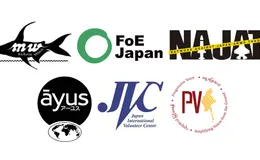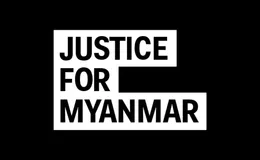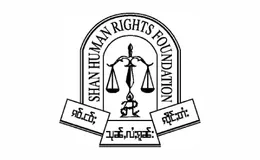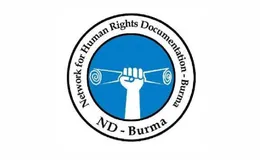

International Aid Must Not Be Abused by Junta
11 April 2025
On 28 March 2025, major quakes with magnitudes of 7.7 and 6.4 struck Myanmar and Thailand, followed by a series of aftershocks, leaving behind utter devastation amidst an already dire humanitarian crisis and a collapsing economy in war-torn Myanmar.
31 March 2025
သတင်းထုတ်ပြန်ကြေညာချက် – မြန်မာနိုင်ငံရှိ ငလျင်ဒဏ်သင့် သက်ရှင်ကျန်ရစ်သူများနှင့် ထိခိုက်ခံစားရသည့် လူထုများအတွက် သဘာဝဘေးအန္တရာယ်ဆိုင်ရာ ကူညီကယ်ဆယ်ရေးအတွက် အရပ်ဘက်လူထုအဖွဲ့အစည်းများတောင်းဆို
23 April 2025
Emergency Seminar: Earthquake in Central Myanmar – Delivering Aid to the People
21 April 2025
Julie Bishop is the only UN Special Envoy on Myanmar to conceal her financial interests from public
Statements & Press Releases

2025-04-23T14:03:26
Emergency Seminar: Earthquake in Central Myanmar – Delivering Aid to the People

2025-04-23T10:41:16
အာဆီယံဥက္ကဌ မလေးရှား ဦးဆောင်သည့် အကြမ်းဖက်မှုတိုက်ဖျက်ရေး လုပ်ငန်းအဖွဲ့တွင် မြန်မာစစ်အုပ်စုပါဝင် ငြိမ်းချမ်းရေးတောင်းဆိုမှုများကို ယုတ်လျော့စေ

2025-04-23T10:35:00
ASEAN Chair Malaysia leading defence counter-terrorism working group with participation of Myanmar military, undermining calls for peace
Announcements
04 April 2025
Myanmar: Human Rights Council condemns the junta, responds to the earthquake, and calls to end sale and supply of arms and jet fuel
13 March 2025
Job Vacancy: Administrative and Finance Assistant
28 February 2025
Open letter: Removal of the membership of the dis-accredited Myanmar National Human Rights Commission from the Southeast Asia National Human Rights Institution Forum
25 February 2025
သတင်းထုတ်ပြန်ကြေညာချက် – တရားမျှတမှုဆီရှေးရှုလျက် အာဂျင်တီးနားတရားရုံး၏ ဖမ်းဝရမ်းထုတ်ပြန်မှုကို ကြိုဆိုထောက်ခံ
25 February 2025
Press Statement: Argentine Court’s arrest warrants are welcome progress towards justice

Progressive Voice is a participatory rights-based policy research and advocacy organization rooted in civil society, that maintains strong networks and relationships with grassroots organizations and community-based organizations throughout Myanmar. It acts as a bridge to the international community and international policymakers by amplifying voices from the ground, and advocating for a rights-based policy narrative.







